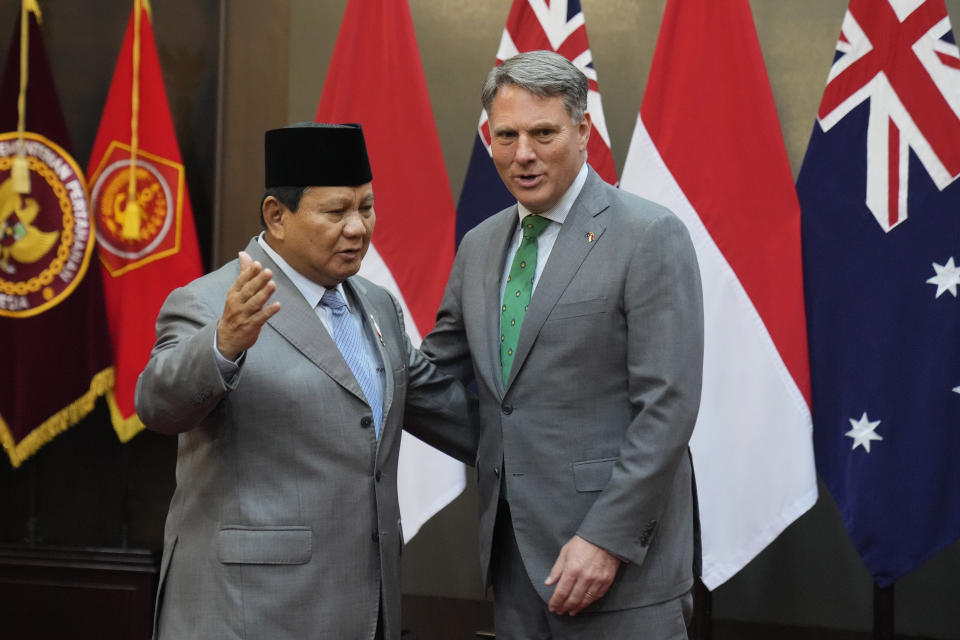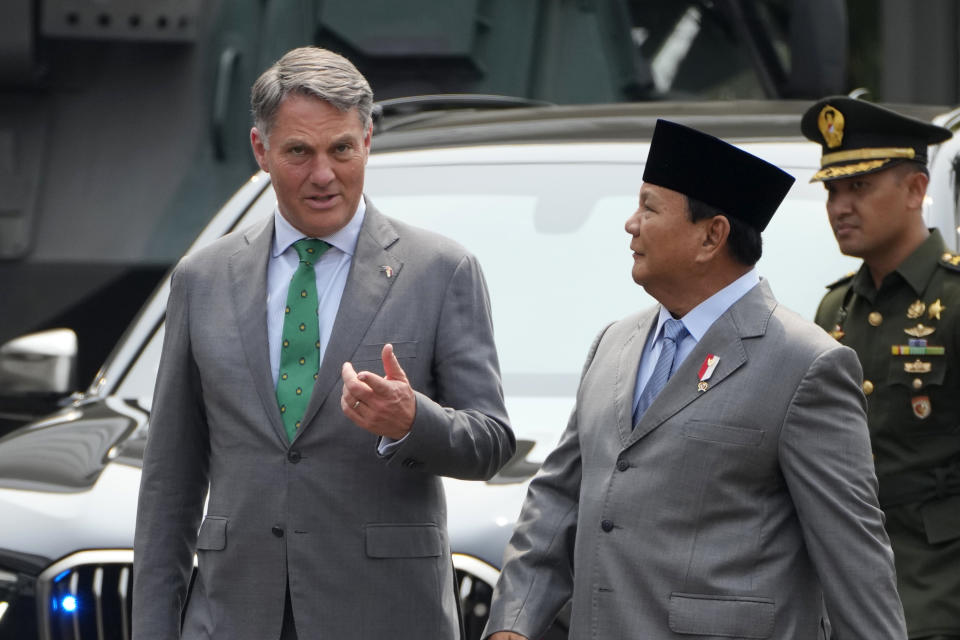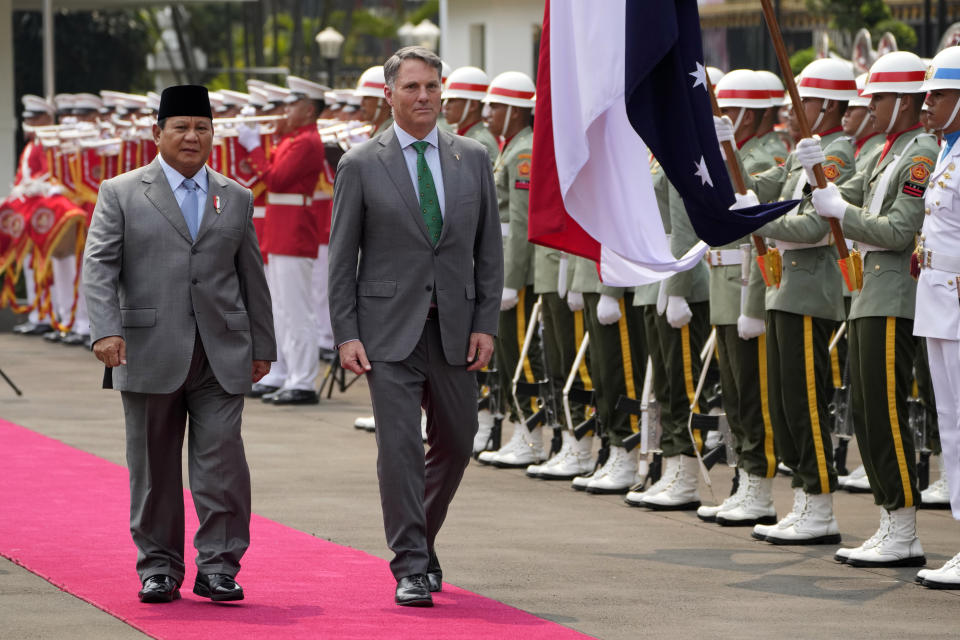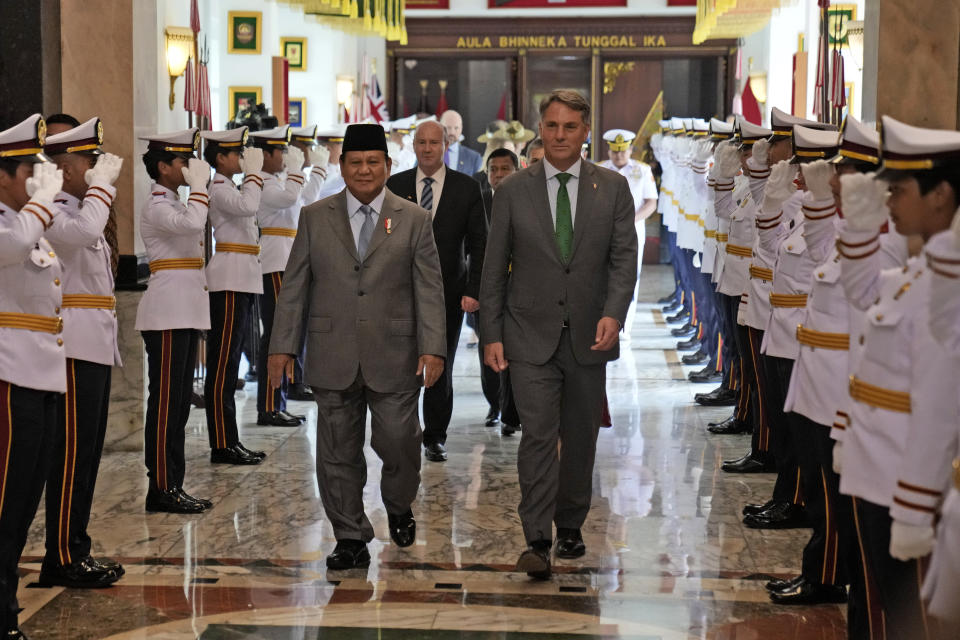Indonesia, Australia affirm defense ties amid China concerns
- Oops!Something went wrong.Please try again later.
JAKARTA, Indonesia (AP) — Australian Defense Minister Richard Marles met his Indonesian counterpart on Monday to deepen security ties amid China’s increasingly assertive activity in the Indo-Pacific region.
Indonesian Defense Minister Prabowo Subianto said he and Marles discussed ways to facilitate cooperation between their militaries.
“Cooperation between Indonesia and Australia can make an important contribution to regional peace and stability,” Subianto said, adding that the two governments agreed to further strengthen their security ties, including joint military training in Australia and the education of Indonesian cadets at Australian academies.
Military exchanges between the two neighbors have previously included counterterrorism and border protection.
Marles declined to make any comment to the media after meeting with Subianto. He vowed in a statement released by the Australian Embassy in Jakarta ahead of the talks to deepen defense engagement with Australia’s closest major neighbor.
“I look forward to progressing our comprehensive strategic partnership during my visit to Jakarta,” Marles said in the statement.
Although Indonesia, a vast archipelago nation of more than 270 million people, is often presented as one of Australia’s most important neighbors and strategic allies, the relationship has undergone various ups and downs.
Recent disagreements include allegations of wiretapping by the Australian Signals Directorate in 2013 to monitor the private phone calls of then Indonesian President Susilo Bambang Yudhoyono, his wife and other senior officials; Indonesia’s use of capital punishment on Australian drug smugglers; and cases of people smuggling.
In 2017, Indonesia temporarily suspended military cooperation with Australia, including joint training, education, exchanges of officers and visits, over an alleged insult against the Indonesian state ideology “Pancasila” and the Indonesian military at an Australian military base.
In September 2021, Indonesia filed a diplomatic protest against Australia for being slow to provide information about its activities in the AUKUS trilateral pact involving the United States and the United Kingdom, including plans for Australia to acquire nuclear-powered submarines.
Last year, Australia, along with Japan and Singapore, joined for the first time the annual Indonesia-U.S. joint combat exercise called Super Garuda Shield, making it the largest since the drills began in 2009.
The expanded drills are seen by China as a threat. Chinese state media have accused the U.S. of building an Indo-Pacific alliance similar to NATO to limit China’s growing military and diplomatic influence in the region.
Marles arrived in Jakarta on Monday after attending the annual Shangri-La Dialogue security forum in Singapore, where he described Australia’s communications about its nuclear-powered submarine program as a model of “military transparency,” and said that China needed to offer a “strategic explanation” of its military expansion.
Marles, who is also Australia’s deputy prime minister, is to visit Vanuatu after Indonesia.




